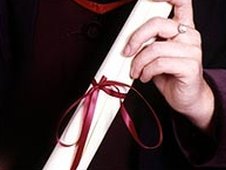The University of Johannesburg (UJ) has taken steps to enhance the security features of its academic certificates to prevent the use of fake qualifications, which is on the rise.
UJ has partnered an international certification solutions company in a bid to protect the reputation of the institution and ensure that its qualifications were not placed in jeopardy.
Academic administration senior manager Tinus van Zyl said educational achievement and the accompanying evidence were normally used to ensure access to employment.
“Often, individuals pursue unlawful avenues to obtain a qualification. It is therefore not surprising that fake qualifications have become a sought-after commodity, regardless of whether they have been earned or not,” Van Zyl said.
He believed that the new advanced certificate paper will make the assessing of the university’s qualifications authenticity much easier.
“The new advanced security certificates will not only protect the university’s certificates from fraud but also preserve the reputation of the institution and the integrity of their qualification,” Van Zyl said.
The new certificates include features such as visible deterrents that cannot be replicated and a micro text security border, a heat reactive spot for instant certificate authentication and individual numbering system for auditing and verification.
“We are pleased to have partnered with UJ to ensure that the university’s qualifications are not placed in jeopardy and that the hard work of its graduates is not undermined by unauthorised and fraudulent degree certificates,” Advanced Secure Technologies Kevin Bassett said.
Education experts and the police have warned that the use of fake university degrees and other qualifications by criminals to infiltrate businesses are on the increase. Head of OVS verification company Danie Strydom said the level of degree fraud in SA was about 13%.
“The danger of employing fraudsters and organised crime kingpins has risen exponentially with the advent of new technology being used by degree mills to make their fake degrees and diplomas look exactly like the real thing,” Strydom said.
He said the most common forgeries were individuals forging degrees that they had not studied for.
He said they would change marks to show that they had passed subjects which they had in fact failed or not studied.
Hawks spokesperson Paul Ramaloko said several people had been arrested in connection with fake qualifications.







